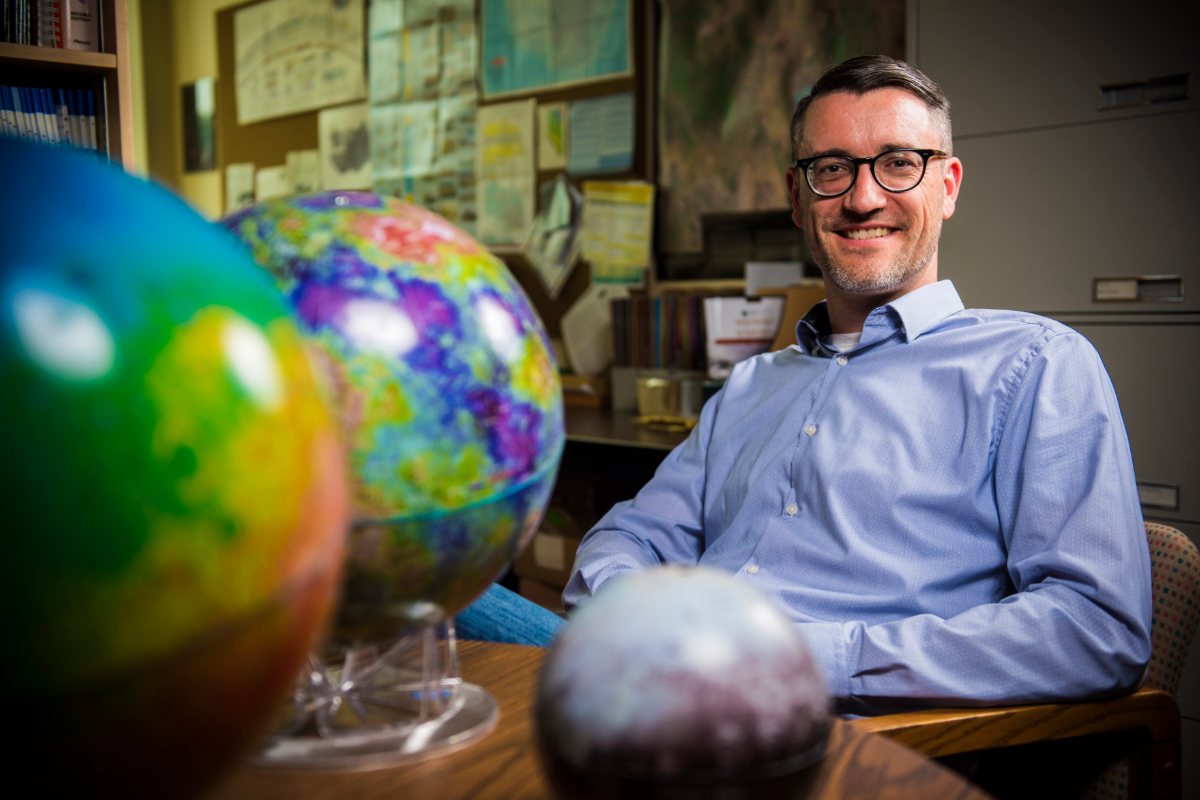
Chris Herd, professor in the Department of Earth and Atmospheric Sciences. Photo credit: John Ulan
Chris Herd’s expertise lies in the study of places he may never go—the planets of our solar system. Professor in the Department of Earth and Atmospheric Sciences and curator of the University of Alberta Meteorite Collection, Herd’s area of expertise is planetary geology.
“I love that there is so much detail we can discover about how our solar system formed—everything from the timing of events that happened over four and a half billion years ago to the places where we might look for life today,” he said.
Herd is also a returned sample scientist for NASA’s Mars 2020 rover mission, which launched on July 30, 2020. In this role, he will lend his expertise in the analysis of Martian meteorites and other rocks to select samples for potential return to Earth that are most likely to provide key information about Mars’s geological history.
Hear more from Herd on meteorites, planetary geology, teaching, and his advice for students learning remotely during the COVID-19 pandemic.
What do you teach?
I teach planetary geology, which is the study of how the planets and other solid bodies in the solar system have evolved in similar or different ways. The perspective that I teach is from the samples—whether meteorites, or rocks brought back by space missions—and what detailed information they can provide about the geologic history of other places in the solar system.
What do you love about your field?
I love that there is so much detail we can discover about how our solar system formed—everything from the timing of events that happened over four and a half billion years ago to the places where we might look for life today.
What should students who are interested in this topic know?
It is a very diverse topic, founded on the principles of geology but requiring knowledge from astronomy, physics, chemistry, and biology. It also requires imagination, the ability to construct a picture in the mind of the geology of a place where we cannot readily go in person.
Tell me about your passion for teaching. What inspires you?
I am inspired by colleagues that nurture and develop the ability to teach complex topics to the non-specialist, and to do so with a passion and enthusiasm that gets the learner excited about it too. I try to do that in my own teaching, and to get across my enthusiasm and excitement about what I study to my students.
How do you cultivate a community of practice with your fellow instructors?
As a member of the Teaching and Learning Committee, I help to cultivate a community of practice by creating a clearing house of information related to teaching. Through webinars and discussions we provide insights into what works and what doesn't that everyone can learn from.
Our world has been turned upside down during the COVID-19 pandemic. What advice would you give students on learning in a remote environment?
Balance your time in front of the screen with exercise and time outside (as best you are able)!
If you want to get excited about space and planetary geology, check out all the fantastic content that space agencies around the world, including NASA, the Canadian Space Agency, and the European Space Agency.
What is one thing that people would be surprised to know about you?
I did fencing (like with swords) when I was in junior high-age, out of a fencing club in Ottawa. I competed and was nationally ranked; not very highly ranked, but ranked nonetheless!
Curious to learn more? Find more information on teaching and learning in the University of Alberta’s Faculty of Science.